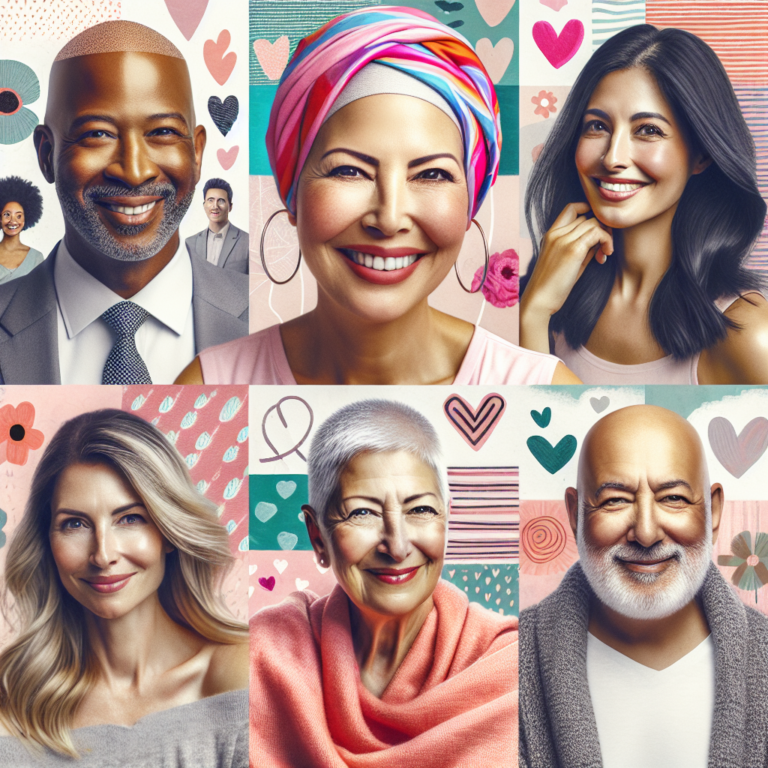
In recent years, an increasing number of celebrities have begun to publicly discuss their struggles with hair loss, shedding light on a topic that is often shrouded in silence and stigma. For many, like myself, who unexpectedly faced baldness in their 30s, the journey is fraught with emotional turmoil and mental health challenges. Observing figures like Lily Reinhardt and Dr. Gary Linkov openly share their experiences brings a sense of validation and community to those of us navigating similar paths. Hair loss, whether due to genetics or autoimmune conditions like alopecia, is not a reflection of one’s worth or a moral failing. In this blog, we will delve into the various facets of hair loss, from personal stories to the latest treatments and tools available, all while emphasizing the importance of representation and support. Join us as we explore how embracing vulnerability can lead to empowerment and hope.
The Emotional Impact of Hair Loss
The journey of dealing with hair loss is often a deeply personal and emotional experience. Many individuals, especially women, may feel isolated and misunderstood as they grapple with a condition that affects not only their physical appearance but also their mental well-being. The lack of representation in media can exacerbate these feelings, as historically, hair loss, particularly in women, has rarely been portrayed or discussed openly. However, the recent trend of celebrities candidly sharing their hair loss experiences brings much-needed visibility to this issue, offering solace and solidarity to many.
Understanding the Causes
Hair loss can be caused by a variety of factors, including genetic predisposition, autoimmune conditions like alopecia, and life stressors leading to conditions such as telogen effluvium. Understanding these underlying causes is crucial in addressing the problem effectively. It dispels the misconception that hair loss is merely a result of poor self-care or dietary choices. For instance, alopecia is not triggered by a bad diet or improper hair products; it is an autoimmune disorder where the body mistakenly attacks its hair follicles. Such conditions are beyond a person’s control and should not be viewed as personal failures.
Celebrities Leading the Way
Celebrities like Lily Reinhardt have courageously opened up about their struggles with mental health and its impact on their physical health, including hair loss. Reinhardt’s honesty about her experiences with OCD and anxiety—and the effects on her hair—helps to normalize these conversations and encourages others to speak out without shame. Her use of a fancy hair regrowth LED device, although not fully detailed, highlights one of the many technological advancements available today for managing hair loss.
Treatment Options
In addition to LED therapies, individuals facing hair loss can consider several other options:
- Low-Level Laser Therapy (LLLT): Devices like the Irestore helmet utilize low-level laser therapy to stimulate hair follicles, promoting regrowth and strengthening existing hair. This method has gained popularity due to its non-invasive nature and promising results, supported by a growing body of scientific research.
- Nutritional Supplements: Products like Nutrafol and iRestore gummies can support hair health by ensuring the body receives vital nutrients essential for hair growth. It’s essential, however, to consult with healthcare providers to tailor these supplements to one’s specific health needs.
- Topical Treatments: There are several over-the-counter topical treatments, such as minoxidil, known to encourage hair growth in certain individuals. These products can be particularly useful in addressing hair thinning and boosting volume.
The Role of Emotional and Psychological Support
While treatments offer hope, the emotional aspect of dealing with hair loss should not be ignored. Psychological support, through therapy or support groups, can provide invaluable assistance in coping with the emotional toll. Talking openly with friends, family, or therapists about the impact of hair loss can alleviate feelings of isolation and depression.
Reframing Beauty Standards
Understanding that hair loss often ties into broader issues of self-esteem and identity is crucial. Society has long emphasized beauty standards that equate health and attractiveness with full, lush hair, which can make those experiencing hair loss feel inadequate or flawed. However, as more public figures and everyday individuals share their journeys, the narrative is slowly shifting to one of acceptance and empowerment.
Seeking Community and Professional Help
For individuals battling hair loss, discovering they are not alone can be incredibly comforting. Engaging in communities, whether online or in person, where people share their experiences and tips can foster a sense of belonging and mutual support. This communal sharing helps dispel myths around hair loss and opens up avenues for exploring effective ways to cope with and treat the condition.
Conclusion
In conclusion, hair loss, though challenging, is becoming less of a taboo topic thanks to the openness of public figures and advancements in treatment options. By embracing these conversations and acknowledging the emotional aspects involved, individuals can find empowerment in their journeys. Remember, hair does not define a person’s worth—it is merely one aspect of their multifaceted identity. Through community, understanding, and innovation, hope remains abundant for those navigating this path.